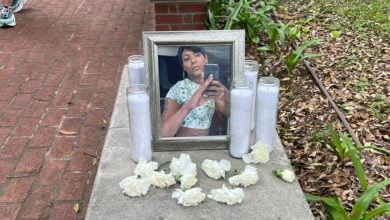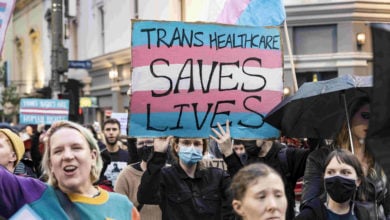On Oct. 6, D.C. Council member David Catania introduced a bill that would legalize same-sex marriage in the District of Columbia. The final vote on the bill will be in December and the bill is expected to pass. Ten of the 13 council members co-sponsored the bill and D.C. Mayor Adrian Fenty has said he intends to sign it.
After the mayor signs the bill, the U.S. Congress has 30 days to proceed with a legislative review that includes veto power over D.C. laws. It is believed that Congress will allow this bill to become law.
The bill’s introduction comes just four months after the D.C. Council passed a bill, which has subsequently become law, recognizing same-sex marriages performed in other states. Opponents of equal marriage rights made several attempts to stop this legislation and the general move towards marriage equality in D.C.
After they failed to pressure Congress to intervene, they attempted to introduce a referendum to overturn the law. In June, the D.C. Board of Elections and Ethics rejected the proposed referendum, ruling it a violation of D.C.’s Human Rights Act, which prohibits discrimination against gays and lesbians, as well as other “minority” people. A D.C. Superior Court judge upheld the election board’s ruling.
Despite legal setbacks thus far, opponents of marriage equality have pledged to do everything in their power to prevent the legalization of same-sex marriage in D.C.
They face growing support from different sectors within the District for equal marriage rights. Many D.C. religious leaders have expressed their support. According to an Oct. 9 Washington Blade article, the Rev. Christine Wiley, co-pastor of Covenant Baptist Church in Anacostia said, “We do believe it’s a human rights issue and we’re very happy for what happened today, that the legislation was introduced. We’re supporting it all the way.” Rev. Wiley is also a leader of the D.C. Clergy United for Marriage Equality, which represents 200 local clergy.
The D.C. same-sex marriage bill is part of a larger trend in states across the country toward marriage equality. Same-sex couples can now marry in Massachusetts, Connecticut, Iowa and Vermont. In New Hampshire, a law legalizing same-sex marriages takes effect Jan. 1, 2010. In Maine, a law has been signed but is now subject to a referendum next month. In New York State, a bill has passed one of two required votes.
This trend is the result of a militant LGBT movement that has consistently demanded equal rights. Despite being confronted by bigoted reactionary attempts to undermine these gains, the movement continues to forge ahead and involve greater layers of society.
The Party for Socialism celebrates the gains made by this movement and stands with the LGBT community in the continued struggle for full equality in D.C. and on the federal level.





